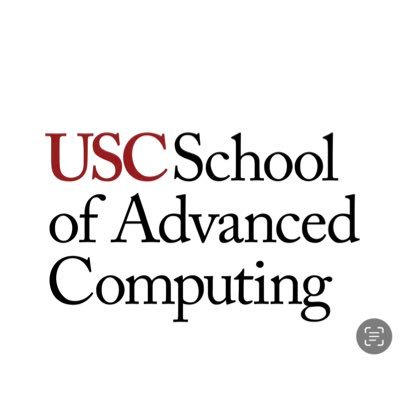
Eric Pop
@profericpop
Followers
4K
Following
696
Media
184
Statuses
803
Semiconductors, 2D materials, heat, data storage, ⚽. Past DJ @KZSU, now Pease-Ye prof of EE/MSE/AP @Stanford. Immigrant.
Joined December 2021
I've mostly moved to LinkedIn, but may occasionally cross-post here. To find me on LinkedIn, go to
linkedin.com
Pease-Ye Professor at Stanford ● EE and courtesy AP & MSE ● Semiconductors, 2D materials, heat, data storage ● SystemX Co-Director ● Previously at UIUC, Intel, KZSU, IBM, MIT · Eric Pop is the...
1
0
7
Thank you for inviting me to Madrid!
Invited talk: What Role Can 2D Materials Play in Future Electronics?, by Eric Pop (Stanford) https://t.co/S8GFHtUUQZ
0
0
19
Paper led by Haotian Su and Yuan-Mau (Leo) Lee is out in @acsnano:
pubs.acs.org
Amorphous oxide semiconductors are gaining interest for logic and memory transistors compatible with low-temperature fabrication. However, their low thermal conductivity and heterogeneous interfaces...
0
0
2
How do amorphous oxide transistors break down? We blew up many indium tin oxide (ITO) transistors, while taking their temperature. They break down due to strain and cracks, which form differently on SiO2 vs on HfO2, due to thermal expansion mismatch. Paper link in comment.
2
0
21
We are living through an epidemic of gray text on off-white background.
0
0
3
If you're at the @Materials_MRS Spring 2025 Meeting in Seattle, stop by to catch our group's 7 talks! Topics range from #2dmaterials to (nanoscale) thermal transport, flexible transistors, and radiation-hard materials. #S25MRS
https://t.co/jN5TPaXnaE
mrs.org
Explore all presentations at the 2025 MRS Spring Meeting & Exhibit. Browse sessions, discover groundbreaking research, and plan your conference experience.
0
0
9
Thank you for inviting me to this, @USCAdvComputing. It was a thought-provoking symposium on the future of computing -- as well as a great chance to catch up with old friends and make some new ones.
Pioneering the Future: Key Insights from the USC Symposium on the Future of Computing https://t.co/KRvMa3N8Mp
@CSatUSC @USCViterbi @USCMingHsiehEE @gauravsukhatme
0
0
7
Thank you, @Rbaltman and Future of Everything podcast (link below), for inviting me to talk about the future of electronics, going beyond silicon and copper. Here I am showing how small a three-atom-thick single layer of MoS2 is. @StanfordEng @Stanford_EE @srcorg @NSF
As electronic materials like silicon and copper are miniaturized, they become less energy-efficient. This is driving the search for alternative materials, Stanford professor Eric Pop @ProfEricPop explains in the latest episode of @Rbaltman's The Future of Everything podcast:
1
3
18
If you work in semiconductors, have you considered "underdog carriers," the "Schottky hurdle," and "voltage preference"? Because "minority," "barrier," and "bias" seem to be on a naughty list at NSF now. I wrote more about this on LinkedIn:
5
6
70
I often read that academia isn't producing PhDs ready for industry jobs. To me, this is fake news among US #engineering departments I know. I charted the PhD and postdoc career paths from my own group, and posted more thoughts on LinkedIn: https://t.co/H8WI1bMhKb
0
0
10
On the research job market? I posted some advice about interviewing on LinkedIn. This is about faculty jobs, but some of it is pretty universal:
linkedin.com
Many folks are doing faculty interviews (by Zoom or in person) right now. Remember to relax! Here’s some advice, maybe of general interest as well: BEFORE the interview… * Congrats! You made the...
0
3
18
Confusing sight today, at Stanford... is that an abandoned Porsche SUV or someone driving around and parking with those things, hoping to confuse parking enforcement? Note how they're arranged, almost too neatly.
2
0
3
... or, oral evaluations in small classes, where this is feasible. Or, computer-based exams in a secure, proctored environment like the testing centers at UIUC, UC Berkeley, and UCSD, which run on #PrairieLearn:
0
0
0
... assessments, can no longer determine grades based on homeworks or take-home and open-book exams. Homeworks are there for practice & feedback, but performance will need to be determined from in-class closed-book exams (with enough time, so time pressure isn't an issue) ...
1
0
0
More broadly, it seems the next 2000 years of homework & exams will look quite different from the past 2000. For the first time since Pliny the Elder gave homework, it's becoming clear that courses which traditionally relied on formative (homework) and summative (exam) ...
1/ According to a story linked below, a Michigan PhD student was expelled for allegedly using AI tools in his written prelims. To me, the punishment is too extreme for the "crime." If answers "seemed irrelevant" or matched ChatGPT, one could fail the prelim, not be expelled.
1
0
3
2/ I'm also puzzled by his choice to get a 2nd PhD (why not a postdoc?) and by his professor's thinking that ChatGPT is no different from MS Word or Google Scholar (?!). Here's the story:
mprnews.org
Haishan Yang, a doctoral student in health economics, filed a lawsuit in federal court last week accusing the University of Minnesota of violating his due process. He is the first Minnesota student...
0
0
1
1/ According to a story linked below, a Michigan PhD student was expelled for allegedly using AI tools in his written prelims. To me, the punishment is too extreme for the "crime." If answers "seemed irrelevant" or matched ChatGPT, one could fail the prelim, not be expelled.
3
0
4
Congrats to the #PECASE awardees! Including PopLab alumnus @NanoMatSE, and Stanford/SLAC colleagues @Amir_Safavi_N, Arianna Gleason, @chelseabfinn, Guosong Hong, @astrodebs_, @DorsaSadigh, @mkwoot -- and to Stanford alumnae @DuyguKuzum & Saniya LeBlanc! https://t.co/SbNaP3V83j
0
0
19







